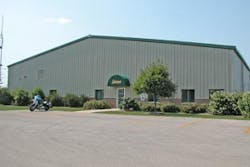Under The Hood
The need for specialized mechanics in the municipality sector is steering profits in the right direction for many tool sellers across the nation. The local and regional governments are tapping into a pool of smart and sophisticated techs trained to operate, maintain and repair a variety of vehicles, from police cars to street sweepers.
Just as city and county officials keep the region humming by staffing animal control specialists, police and fire departments, city water district workers, survey inspectors, tractor operators, road pavers, taxi and postal drivers, and sanitation and recycling truckers—to name a few—the techs behind their corresponding vehicles play a critical role in keeping these economic engines tuned.
When the private sector is busy slashing its payroll by cutting jobs or reducing mechanics’ hours, the public works departments are typically flourishing. After all, if municipality officials terminated mechanics altogether, no one would be qualified to maintain and repair the vehicles used every day that permit municipality workers to do their jobs or transport workers between various work sites.
The following places are examples of where tool sellers might find a municipality mechanic:
- A water district office.
- A police facility.
- A fire department.
- A sheriff’s office.
- A tractor and/or other large equipment yard.
- City surveyors' offices.
- A street sweeper site.
- A sanitation district.
- City or county-owned mass transit stations.
Auto service techs held roughly 803,000 jobs in 2004, with most working in independent repair shops, car dealerships, government organizations or part/retail chains. About 16 percent of the nation’s auto techs worked for themselves.
Light automotive mechanics in the municipality sector are comprised of auto body and other related repairers, small engine specialists and diesel service techs, especially as diesel-powered engines become more prevalent in light vehicles, including passenger cars, pickups and other work trucks.
Obviously, those trained to handle diesel-powered vehicles repair and maintain diesel engines in equipment like heavy-duty trucks, buses and locomotives, not to mention industrial equipment like bulldozers, cranes, road graders and more.
Those who work for organizations that maintain their own vehicles spend most of their time doing preventive maintenance to ensure the equipment is operating correctly, safely and as efficiently as possible.
The municipality sector often reimburses mechanics up to 100 percent for their tool bills, or doles out a specific allowance, which makes it easy for those in the shop to add to their existing line of tools without having to draw from their own pocketbooks.
The median hourly earnings for heavy equipment mechanics hover around $18.34 per hour. While the middle 50 percent tends to earn between $14.96 and $21.75 per hour, the lowest 10 percent fetches $12.11 per hour, and the highest 10 percent brings home more than $26.27 per hour.
The median hourly pay for mechanics with federal government jobs is $20.41 per hour; local government is $19.22; highway, street and bridge construction is $17.79, according to the Bureau of Labor Statistics at the U.S. Department of Labor.
In Chicago, Cleveland, Miami, New York City, Portland, Sacramento and Seattle, maintenance mechanics in the public sector earned higher wages compared to the private sector, according to the AFSCME.
In Chicago, maintenance workers in the municipality sector earned an average of $22.12 per hour, compared to the $18.29 for the private sector; public workers in Cleveland earned $19.77 per hour vs. $17.26 per hour for private workers; in Miami, public workers earned $16.37 per hour compared to $14.04 per hour for the private sector; in Portland mechanics in the municipality sector earned $18.19 compared to the $16.93 hourly average for private jobs; in Sacramento public workers earned $19.36 hourly compared to the $16.24 workers earned in the private sector; and in Seattle mechanics in the public sector earned $19.81 per hour compared to the $18.94 of those on the private side. In New York City, the pay difference between public and private sector mechanics was startling: $27.26 per hour compared to $18.54 per hour.
On the opposite side of the coin, several major metro areas, including Atlanta, Boston, Columbus, Dallas, Houston, San Diego and San Francisco, saw the reverse of this trend. In these cities, workers in the private sector earned more (on average per hour) than those in the public sector.
